Physics
Sign up for our newsletter
We summarize the week's scientific breakthroughs every Thursday.
-
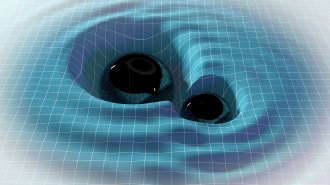 Physics
PhysicsScientists have two ways to spot gravitational waves. Here are some other ideas
From lasers in space to falling atoms on Earth, researchers are cooking up ways to sense gravitational waves that current methods can’t detect.
-
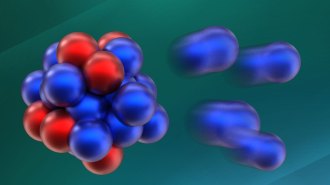 Particle Physics
Particle PhysicsScientists finally detected oxygen-28. Its instability surprised them
The elusive isotope was predicted to be very stable, thanks to “magic” numbers of neutrons and protons. It fell apart almost immediately.
By Elise Cutts -
 Physics
PhysicsFilipino math teacher Emma Rotor helped develop crucial WWII weapons tech
Devoted wife of a famed Filipino writer, Emma Unson Rotor worked on the proximity fuze at a U.S. agency in the 1940s.
-
 Physics
PhysicsSuperconductor research surges forward despite controversy over stunning claims
After retractions from Ranga Dias’ group, high-pressure physicists are feeling the squeeze, fearing the controversy will tarnish other research.
-
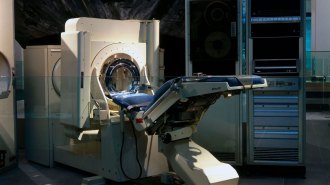 Health & Medicine
Health & Medicine50 years ago, X-rays provided an unprecedented look inside the brain
CT scans can now image the whole body and are even used in other scientific fields such as archaeology, zoology and physics.
-
 Chemistry
ChemistryChemists turned plastic waste into tiny bars of soap
Researchers developed a process to turn plastic waste into surfactants, the key ingredients in dozens of products, including soap.
-
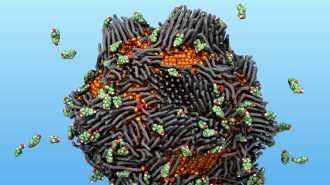 Chemistry
ChemistryMagnetic ‘rusty’ nanoparticles pull estrogen out of water
Iron oxide particles adorned with “sticky” molecules trap estrogen in water, possibly limiting the hormone’s harmful effects on aquatic life.
By Skyler Ware -
 Physics
PhysicsHow to run a marathon in under two hours
Running between other people reduces air resistance. A new study identifies optimal positioning of such drafting formations. Watch out, marathon records.
-
 Particle Physics
Particle PhysicsThere’s a new measurement of muon magnetism. What it means isn’t clear
The measurement, from the Muon g−2 experiment, is the most precise yet. But recent theoretical predictions are a bit muddled.
-
 Physics
PhysicsCenturies on, Newton’s gravitational constant still can’t be pinned down
A new experiment could finally answer the question 'What is the strength of gravity?' But it's a hard test to do.
-
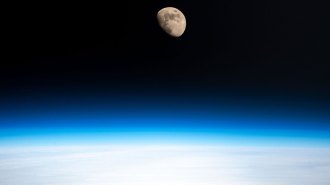 Physics
PhysicsMass has different definitions. The moon’s orbit confirms two are equivalent
Laser measurements of the moon’s orbit square with Newton’s third law of motion and Einstein’s theory of gravity.
-
 Materials Science
Materials ScienceThis ‘thermal cloak’ keeps spaces from getting either too hot or cold
A new thermal fabric prototype could help keep cars, buildings and other spaces a comfortable temperature during heat waves while reducing CO₂ emissions.
By Skyler Ware